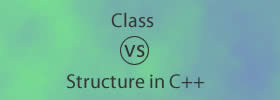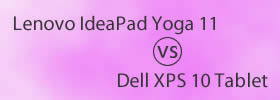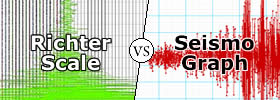Difference between Communism and Democracy
Key difference: Communism refers to an economic and political system which aims to distribute resources to each person as per their needs. Democracy is a form of government where all citizens have equal rights to elect their officials.
include("ad4th.php"); ?>
 Communism and democracy are ideological principles. They differ in their beliefs as to how a country should be run. Communism is an economic system that holds the society and community as the primary interest, whereas democracy is a form of government in which all eligible citizens have an equal say in the social, economic and cultural decisions. Citizens vote to choose representatives who will run and make the hard decisions of the government.
Communism and democracy are ideological principles. They differ in their beliefs as to how a country should be run. Communism is an economic system that holds the society and community as the primary interest, whereas democracy is a form of government in which all eligible citizens have an equal say in the social, economic and cultural decisions. Citizens vote to choose representatives who will run and make the hard decisions of the government.
Also see: Democracy Vs. Capitalism
The word communism comes from the Latin word "communis", which means "shared" or "belong to all". It is the idea of a free society with no division or alienation, where the people are free from oppression and scarcity. According to dictionary.com, the definition of communism states that it is a theory or system of social organization based on the holding of all property in common, actual ownership being ascribed to the community as a whole or to the state. Communism is a system of social organization in which all economic and social activity is controlled by a totalitarian state dominated by a single and self-perpetuating political party. See: Democracy Vs. Monarchy
include("ad3rd.php"); ?>
The term, democracy, originates from the Greek: dēmokratía, which stands for the rule of the people. According to dictionary.com, democracy is a type of government by the people; a form of government in which the supreme power is vested in the people and exercised directly by them or by their elected agents under a free electoral system. It can be a state having such a form of government: The United States and Canada are democracies. It is a state of society characterized by formal equality of rights and privileges. It has political or social equality; a democratic spirit.
The main difference is that communism holds that centralized organizations should manage the economy to bring about statelessness and classlessness, i.e. everyone will be equal. Communism believes in bringing about classlessness by putting an end to capitalism and private ownership. It says that everything, including properties, factories, etc. should be owned by the central government, while the work and profit should be divided equally among the people by the government. Everyone should have equal access to work, shelter, food, etc.
Democracy, on the other hand, acknowledges that we can’t get rid of classlessness. It promotes the individuals' right to own property and means of production. It supports capitalism, in which individuals' can open and run their own businesses. In a democracy, every person is equal, and they have the right to work to support themselves and to move up or down the social ladder.
 Democracy also supports and promotes the idea of freedom of political expression, freedom of speech and freedom of the press, among equal right for the citizens. Everyone is equal in the eyes of the law and government. It allows eligible citizens to have an equal say in the decisions, including proposal, development, and creation of laws, that affect their lives. Citizens can either do this directly or through elected representatives.
Democracy also supports and promotes the idea of freedom of political expression, freedom of speech and freedom of the press, among equal right for the citizens. Everyone is equal in the eyes of the law and government. It allows eligible citizens to have an equal say in the decisions, including proposal, development, and creation of laws, that affect their lives. Citizens can either do this directly or through elected representatives.
There are various types of democracies:
- Direct democracy – in which citizens have direct and active participation in the decision making of the government.
- Representative democracy – citizens remain the sovereign power but political power is exercised indirectly through elected representatives.
- Parliamentary democracy – a representative democracy where the government is appointed by representatives.
- Presidential Democracy – the public elects the president through free and fair elections. The president serves as both the head of state and head of government controlling most of the executive powers. The president serves for a specific term and cannot exceed that amount of time.
- Constitutional democracy – a representative democracy in which the ability of the elected representatives to exercise decision-making power is subject to the rule of law, and usually moderated by a constitution.
- Hybrid democracies or semi-direct democracies – which combine elements of representative democracy and direct democracy.
The only problem is that in the real world, ideologies get distorted. In modern terminology, communism has become synonymous to an Oligarchy. In an oligarchy, everything is ruled by an elite few. In modern communist regimes, one person or one party comes to power and the policies of states get controlled by these communist parties. They turn the communist regimes into dictatorships.
Some examples of modern communist regimes include the Socialist Republic of Vietnam, the People's Republic of China (PRC), North Korea, the Soviet Union, Cuba, Cambodia, and Laos.
Most modern democracies are either a type of representative democracy or a hybrid democracy. Democracies are supposed to be a type of government which contrasts to forms of government where power is either held by one, i.e. a monarchy, or where power is held by a small number of individuals, i.e. oligarchy or aristocracy. However, at times the elected representatives start to abuse their power and take over the government, which then starts to resemble the oligarchy or aristocracy.
The Democracy Index 2011 categorized the following countries as full democracies: Norway, Iceland, Denmark, Sweden, New Zealand, Australia, Switzerland, Canada, Finland, Netherlands, Luxembourg, Ireland, Austria, Germany, Malta, Czech Republic, Uruguay, United Kingdom, United States, Costa Rica, Japan, South Korea, Belgium, Mauritius, and Spain.
The following countries were categorized as flawed democracies: Argentina, Benin, Botswana, Brazil, Bulgaria, Cape Verde, Chile, Colombia, Croatia, Cyprus, Dominican Republic, El Salvador, Estonia, France, Ghana, Greece, Guyana, Hungary, Indonesia, Israel, Italy, Jamaica, Latvia, Lesotho, Lithuania, Macedonia, Malaysia, Mali, India, Mexico, Moldova, Mongolia, Montenegro, Namibia, Panama, Papua New Guinea, Paraguay, Peru, Philippines, Poland, Portugal, Romania, Serbia, Slovakia, Slovenia, South Africa, Sri Lanka, Suriname, Taiwan, Thailand, Timor-Leste, Trinidad and Tobago, Zambia.
Also see: Direct Vs. Representative Democracy
A comparison between Communism and Democracy:
|
|
Communism |
Democracy |
|
Definition |
A theory or system of social organization based on the holding of all property in common, with actual ownership ascribed to the community or state |
A system of government by the whole population or all the eligible members of a state, typically via elected representatives |
|
Belief |
Work and profit is equally distributed |
Everyone has an equal right and say in every matter |
|
Political System |
Everyone runs the government. Modern communism: a dictator or a political party controls everything |
The government made up of officials elected by the people |
|
Social Structure |
Classlessness and statelessness |
There are classes, the rich, the middle class, due to capitalism. However, capitalism allows people to move between classes. |
|
Economic System |
The government distributes wealth, goods and profits among the people, as everything is owned by the government, it has the right to redistribute. |
Capitalist – everyone works and earns to fulfill their needs. |
|
Choice |
All choices, including education, religion, employment, and marriage, controlled by the state |
Permitted within legal limits |
|
Private Property |
Everything is owned by the government |
People can own homes, property, and factories, etc. |
|
Religion |
No need for religion to be practiced. |
Freedom to practice own religion |
|
Practical Application |
Warped, the government has total control, does not distribute profit, no one works, as there is no incentive to work. If a citizen goes again to the government, they can be imprisoned. |
Citizens vote to elect officials: voting can be skewed. Elected officials misuse power. The majority oppresses the minority. |
Image Courtesy: ricksarticles.blogspot.in, mrdonn.org









Comments
Very informative, Adam!
anneau b.zero1 ...
Sat, 07/29/2017 - 11:54
WOW! So helpful!!!
John Jacobson
Tue, 08/19/2014 - 19:21
Add new comment